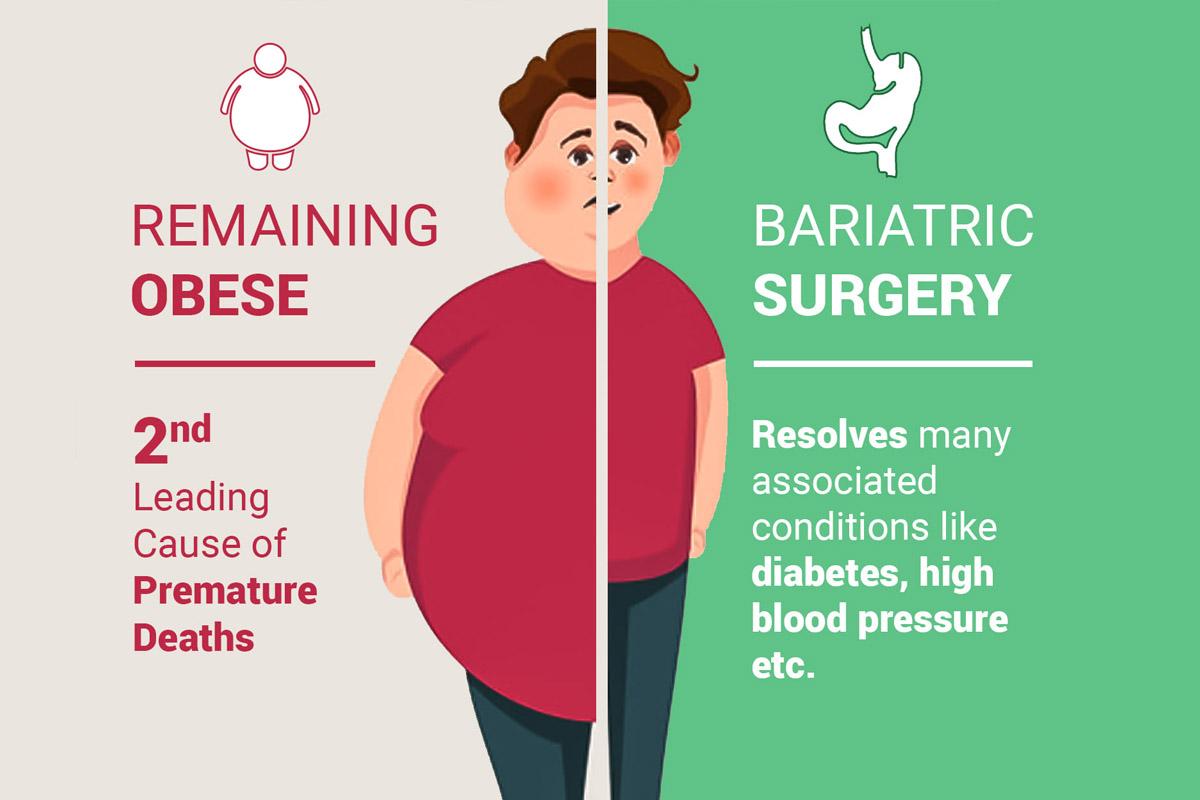Eligibility for bariatric surgery is determined in part by what’s known as your body mass index, a numerical value of your weight in relation to your height. A BMI range of 18-24.9 is considered optimal. Morbid obesity is defined as a BMI score of 40 or more.
You typically qualify for bariatric surgery if you have a BMI of 35-39, with specific significant health problems like Type 2 diabetes, sleep apnea or high blood pressure. A BMI of 40 or higher also is a qualifying factor.
This BMI Calculator is designed for adults only and it is not accurate for all body types. To assess if your weight is within a healthy range for your body type, please attend one of our upcoming seminars.
Understand your BMI results
Use the chart below to see what category your BMI falls into, and whether you need to be concerned about your weight.
| BMI | CATEGORY |
| Below 18.5 | Underweight |
| 18.5 – 24.9 | Healthy |
| 25.0 – 29.9 | Overweight |
| 30.0 – 39.9 | Obese |
| Over 40 | Morbidly obese |
BMI is not always an accurate way to determine whether you need to lose weight. Here are some exceptions:
- Body builders: Because muscle weighs more than fat, people who are unusually muscular may have a high BMI.
- Elderly: In the elderly it is often better to have a BMI between 25 and 27, rather than under 25. If you are older than 65, for example, a slightly higher BMI may help protect you from osteoporosis.
- Children: While an alarming number of children are obese, do not use this BMI calculator for evaluating a child. Talk to your pediatrician about the appropriate weight for your child’s age.
Doctors use a few different methods to determine whether you are overweight. Your doctor may also take your waist circumference and waist-to-hip ratio into consideration.
In addition, a lot of other factors influence your health. These include:
- Blood pressure
- Blood sugar levels
- Cholesterol levels
- Diet
- Physical activity
- Smoking
Being overweight puts strain on your heart and can lead to serious health problems. These problems include:
- Heart disease
- High blood pressure
- Sleep apnea
- Type 2 diabetes
- Varicose veins
Your BMI alone cannot predict your health risk, but most experts say that a BMI greater than 30 (obesity) is unhealthy. No matter what your BMI is, exercise can help reduce your risk of heart disease and diabetes. Remember to always ask your doctor before starting an exercise program.


